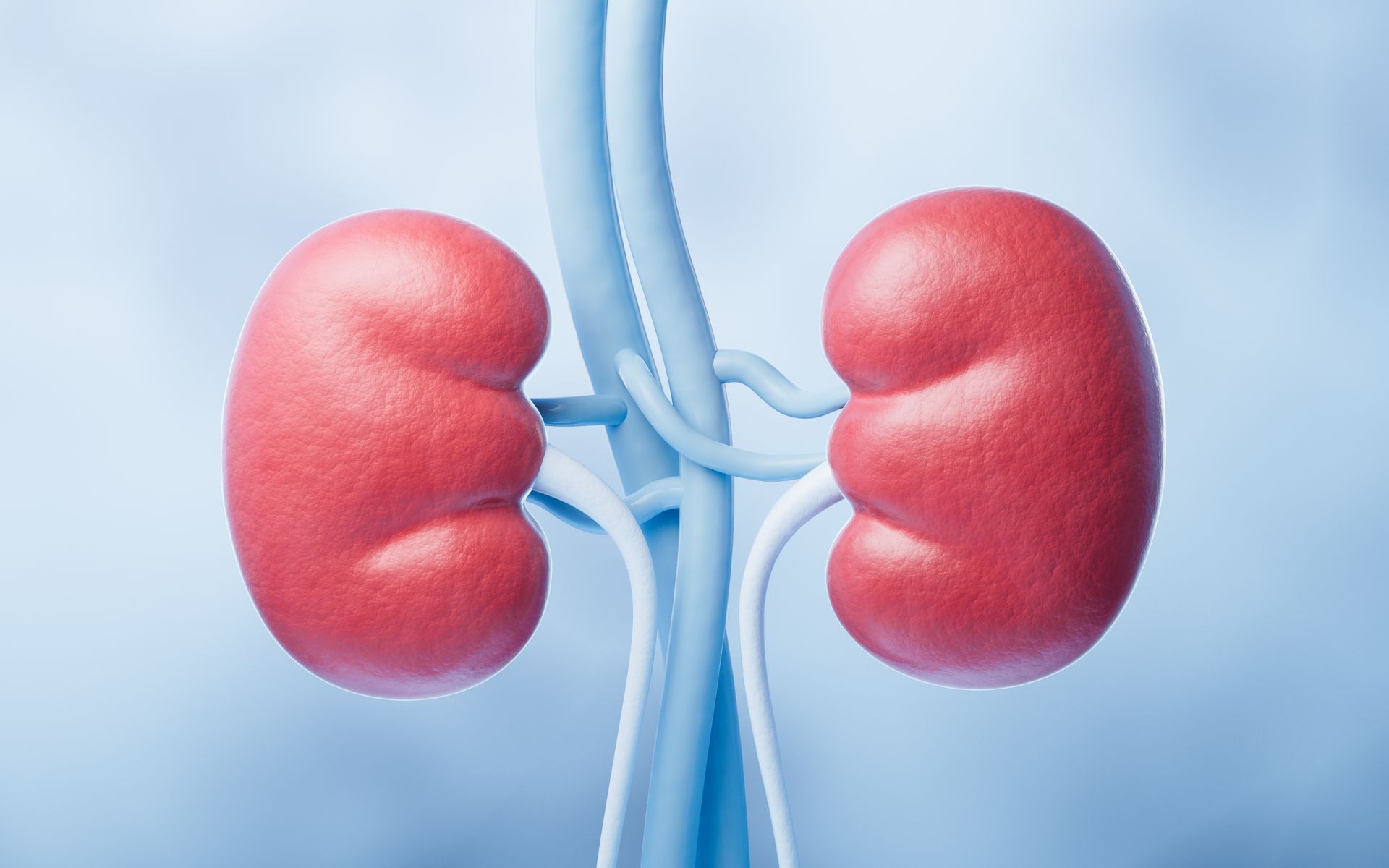How to restart weight loss after gastric sleeve surgery
Wondering how to restart weight loss after gastric sleeve surgery? Understand why regain occurs and what to do.

Gastric sleeve surgery, also known as 'sleeve gastrectomy', is one of the most widely performed bariatric procedures worldwide. It involves removing around 75% to 80% of the stomach to restrict how much food you can eat. This can lead to significant weight loss – often around 60% to 70% of excess weight in the first year.
But for some people, that progress can stall or even reverse. Gaining weight after gastric sleeve surgery is a common challenge.
While weight gain can feel disheartening, it doesn't mean the procedure didn't work. It simply reflects the complexity of long-term weight regulation.
So, how can you restart weight loss after gastric sleeve surgery? It starts with understanding why regain happens and building a plan that works with, not against, your body.
Why does weight regain happen after gastric sleeve surgery?
Even when the initial results are positive, some weight regain after a gastric sleeve is common. One systematic review found that regain rates ranged from 5.7% at two years to 75.6% by six years after surgery.
There are several reasons this might happen:
- Stomach capacity increases: over time, the stomach may stretch, allowing you to eat larger portions again.
- Metabolism adapts: as calorie intake drops, the body adjusts by lowering your resting metabolic rate.
- Old habits return: snacking and emotional eating can gradually come back into the picture.
- Life happens: stress, hormonal changes, different routines and other lifestyle factors can all get in the way of progress.
These challenges are normal – and they don't mean you've failed. They often just mean it's time for a bit more support.
Speak to your clinical team first
If your weight loss has plateaued – or you've regained some weight – your first move should be a check-in with your bariatric team or GP. They might:
- Run blood tests to check for hormonal or nutritional issues
- Review your medications
- Talk through your daily routines and eating habits
A simple medical review can reveal practical ways to reignite weight loss. What really matters is working with a team that sees the full picture.

Revisiting lifestyle foundations
Regaining weight doesn't mean you should just give up. See it as a signal that your body needs something different – and that's OK.
For many people, going back to basics is the most effective way to rebuild momentum.
That might mean:
- Tracking meals and snacks to spot patterns
- Prioritising lean protein and fibre
- Cutting back on liquid calories
- Reintroducing movement gradually and consistently
- Learning new ways to respond to emotional or stress-related triggers
Aiming for perfection isn't likely to get you where you need to be. Consistency should be your goal, as well as building small habits that work for you.
Could weight loss medication help?
For some people, medication can offer an extra layer of support. Drugs like Wegovy (semaglutide) and Mounjaro (tirzepatide) mimic gut hormones to help you feel fuller quicker, regulate blood sugar and reduce appetite.
These drugs are licensed in the UK for adults with a BMI of 30 or greater – or at least 27 with a weight-related health condition.
Clinical trials show:
- Semaglutide users lost an average of 14.9% of their body weight over 68 weeks
- Tirzepatide users lost an average of 20.9% of their body weight over 72 weeks
These are strong results – and they're helping shape theory around medication use after bariatric surgery.
While GLP-1 drugs aren't specifically licensed for post-op weight regain, research is emerging.
A 2025 real-world study found that patients who used semaglutide or liraglutide after regaining weight after bariatric surgery lost an average of 99.3% of the weight they'd regained. Another trial comparing treatment options found those on GLP-1s lost the most weight overall: around 6.9% of total body weight.
More studies are needed, but the early picture is promising. If you're curious about medication, speak to your clinician – they can guide you safely.
Exploring surgical revision

In some cases, further surgery may be worth considering. This could involve:
- Tightening or reshaping the original sleeve
- Converting to a different procedure, such as a bypass
- Treating physical issues like reflux or significant stretching
Revision surgery isn't right for everyone – and it comes with added risks. But for some, it can restore restriction or help manage symptoms that stand in the way of weight loss.
Combining strategies for long-term support
Most of the time, restarting weight loss isn't about just one thing. It's about finding the right mix for where you are now. You might:
- Start logging your food again
- Focus on balanced, protein-focused meals
- Try group or at-home exercise plans
- Explore GLP-1 medication with clinical guidance
- Reconnect with your original bariatric care team
And if you feel stuck, that's OK. You don't need to have it all figured out. Sometimes, the most powerful step is simply recognising something isn't working and asking what might help.
That might mean reaching out for support, making one small change or giving yourself permission to try a different approach. The perfect plan doesn't exist – you just need to find the one that fits your life and your goals right now.
At SemaPen, we're part of Phoenix Health, one of the UK's most trusted bariatric surgery providers. Our team recognises that health journeys are individual. That's why we offer medical assessments, smart scale integration, ongoing monitoring and access to licensed medications as part of our Mounjaro and Wegovy medication programmes.
The care we provide is designed to adapt to your situation, not the other way around.
Moving forward
Regaining weight after gastric sleeve surgery is common – and it doesn't undo the work you've already done. It just means your body needs a new approach, and that's something you can build gradually.
Want to explore your options? You could start by taking our online consultation. We'll ask you questions about your health and medical history – including prior surgeries – and recommend the best possible treatment for you.
Sources
1. https://www.uclahealth.org/medical-services/surgery/bariatrics/gastric-sleeve
2. Noria, S.F. et al. (2023) "Weight Regain After Bariatric Surgery: Scope of the Problem, Causes, Prevention, and Treatment" Current Diabetes Reports, 23(3) https://doi.org/10.1007/s11892-023-01498-z
3. Wilding, J.P.H. et al. (2021) "Once-weekly semaglutide in adults with overweight or obesity" The New England Journal of Medicine, 384(11) https://doi.org/10.1056/NEJMoa2032183
4. Jastreboff, A.M. et al. (2022) "Tirzepatide Once Weekly for the Treatment of Obesity" The New England Journal of Medicine, 387(3) https://doi.org/10.1056/NEJMoa2206038
5. Jensen, A.B. et al. (2025) "Efficacy of 12 months therapy with glucagon-like peptide-1 receptor agonists liraglutide and semaglutide on weight regain after bariatric surgery: a real-world retrospective observational study" BMC Endocrine Disorders, 25(93) https://doi.org/10.1186/s12902-025-01913-4
6. Gazda, C.L. et al. (2021) "Pharmacotherapies for Post-Bariatric Weight Regain: Real-World Comparative Outcomes" Obesity, 29(5) https://doi.org/10.1002/oby.23146
This article was reviewed and approved by Alice Fletcher, Lead Bariatric Dietitian, on 7 July 2025.
- Average 15–21% weight loss
- Trusted programmes built by UK experts
- Personalised advice and support
- Smart weight loss app to track progress and learn positive habits
Your journey starts in the app
Unlock tailored support, weight tracking and more.
1
Download the free app
2
Take your digital consultation
3
Start your programme












